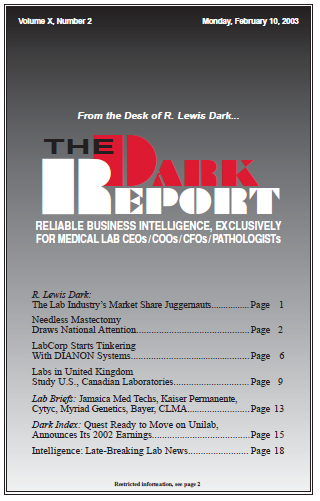CEO SUMMARY: For almost two decades, DIANON Systems supported one of the most successful sales and marketing programs in the public laboratory sector. However, despite its pre-acquisition statements that it would retain DIANON’s operational integrity, LabCorp has already begun to implement subtle changes to DIANON Systems. Time will tell whether or not these management decisions […]
To access this post, you must purchase The Dark Report.


